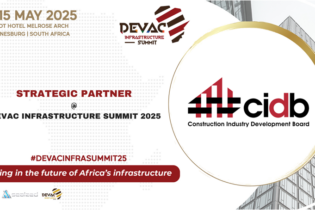In celebration of International Women in Engineering Day (INWED) on 23 June, leading consulting engineering and infrastructure advisory firm Zutari highlights the achievements of four exceptional women.
Held under the banner of the Women’s Engineering Society (WES), INWED celebrates its 10th year in 2023, yet again be promoting the amazing work being carried out by women engineers across the globe. Tshegofatso Sibambato, Professional Civil Engineer, Project Leader, and Design Engineer at Zutari Tshegofatso completed her Bachelor of Science in Civil Engineering at the University of the Witwatersrand. She is a professionally registered civil engineer in the built environment market, with a particular specialisation in land development. Tshegofatso was inspired to study engineering because she loves seeing the fruit of her labours come alive by building civil infrastructure. “Engineering elements are all around us, and I wanted to be a part of building our country by implementing infrastructure services. Service delivery remains a huge concern for most communities within South Africa. This speaks to our vast opportunities as engineers to implement projects to provide these services. This is how I see myself making a difference within the industry that I find myself in,” she highlights. Her message to girls wanting to embark on a similar career is to find mentors in the engineering space: “It is important to create networks of individuals who have your best interests at heart and will help you succeed; mentors fulfil this role incredibly. Look for opportunities to expose yourself to the work environment, either through working during vacation time or over weekends if possible. Find ways of equipping yourself with skills and experience that will help you stand out when you eventually join the workforce.” Tshegofatso adds: “Do not be afraid of the industry because you feel it is male-dominated. Efforts are constantly being made for the engineering industry to transform. Many women continue to excel in the industry and have paved the way for others to have better experiences than they did. Diversity brings strength and, because of that, more women are needed in the industry to make the right moves. There are many roles that one can fulfil as an engineer; you need to find the one which best suits you.” Mary-Anne Fechter, Environmentally Sustainable Design Consultant at Zutari Mary-Anne studied civil engineering at the University of Pretoria. After her studies, she worked as a graduate civil engineer, focusing mainly on urban road design. With an interest in sustainability and natural resources, she completed a Master’s in Spatial Development and Natural Resource Management at the Technical University of Dresden in Germany. Due to this combination of civil engineering and natural science, she understands and has experience in the impact that the built environment has on natural resources and how to integrate sustainability and resiliency into the planning, construction and operations of buildings and other infrastructure. Mary-Anne works as an Environmentally Sustainable Design (ESD) consultant at Zutari.“Engineers are taught to think critically, collaborate and provide solutions,” says Mary-Anne. “Society is facing various challenges, ranging from biodiversity loss and impacts of climate change to inadequate infrastructure to provide for people’s basic needs. Engineering is crucial to tackle these problems and provide appropriate solutions. This way, engineering improves the quality of life of communities worldwide. Engineering is an exciting and ever-changing space. You learn to think critically and creatively to solve problems. It is a challenging, yet rewarding and impactful, journey.”
Thandazo Shabalala, Built Environment Unit, Zutari Thandazo obtained a National Diploma in Civil Engineering from the Cape Peninsula University of Technology in 2007. She is a South African Institution of Civil Engineering (SAICE) member and a registered candidate engineering technician with the Engineering Council of South Africa (ECSA). She has gained valuable experience working in civil infrastructure projects, including supplying and upgrading water and sanitation infrastructure for municipalities. Thandazo is currently a Senior Civil Technician specialising in the design and construction supervision of water and sanitation projects. She works under the multidisciplinary Built Environment team, which specialises in designing and delivering land infrastructure projects. “A career in engineering allows you to change lives and make a difference in your community by solving problems and designing what really matter,” says Thandazo. “It is a fact that men dominate the civil engineering world,” she notes. Also, many people may say this field is not for women due to the challenges faced at construction sites. However, women are extremely resilient. Building and designing infrastructure makes a difference in our communities and people’s lives by ensuring people have access to potable water and adequate sewerage. Belinda Selkirk, Technical Director, Built Environment, Zutari Belinda has a Diploma in Project Design focusing on building engineering, as well as a Diploma in Fire Science and Fire Safety. The Institute of Fire Engineers has awarded her her GiFireE Credentials. She has been fortunate enough to have worked on many projects both locally and internationally, from shopping malls to mixed-use developments, residential and hotel developments and industrial and medical facilities. “I never started out as a lead fire engineer. My first job was as a draughtsperson, but hard work and perseverance paid off. Decide what you want and lay out a clear path to get to where you want to be. If you come across a setback, take a moment, reflect, and try a different way to get there. Working in the engineering environment is an exciting space. There is room for all types of people with different skillsets. Find what you enjoy and use that to direct your career trajectory,” says Belinda. Her message is simply that the only obstacle in your path is yourself. INWED is an opportunity to give all women a voice to be heard. “By sharing our experiences and how we have overcome hurdles, we create awareness about the unseen issues that women experience,” concludes Belinda.






